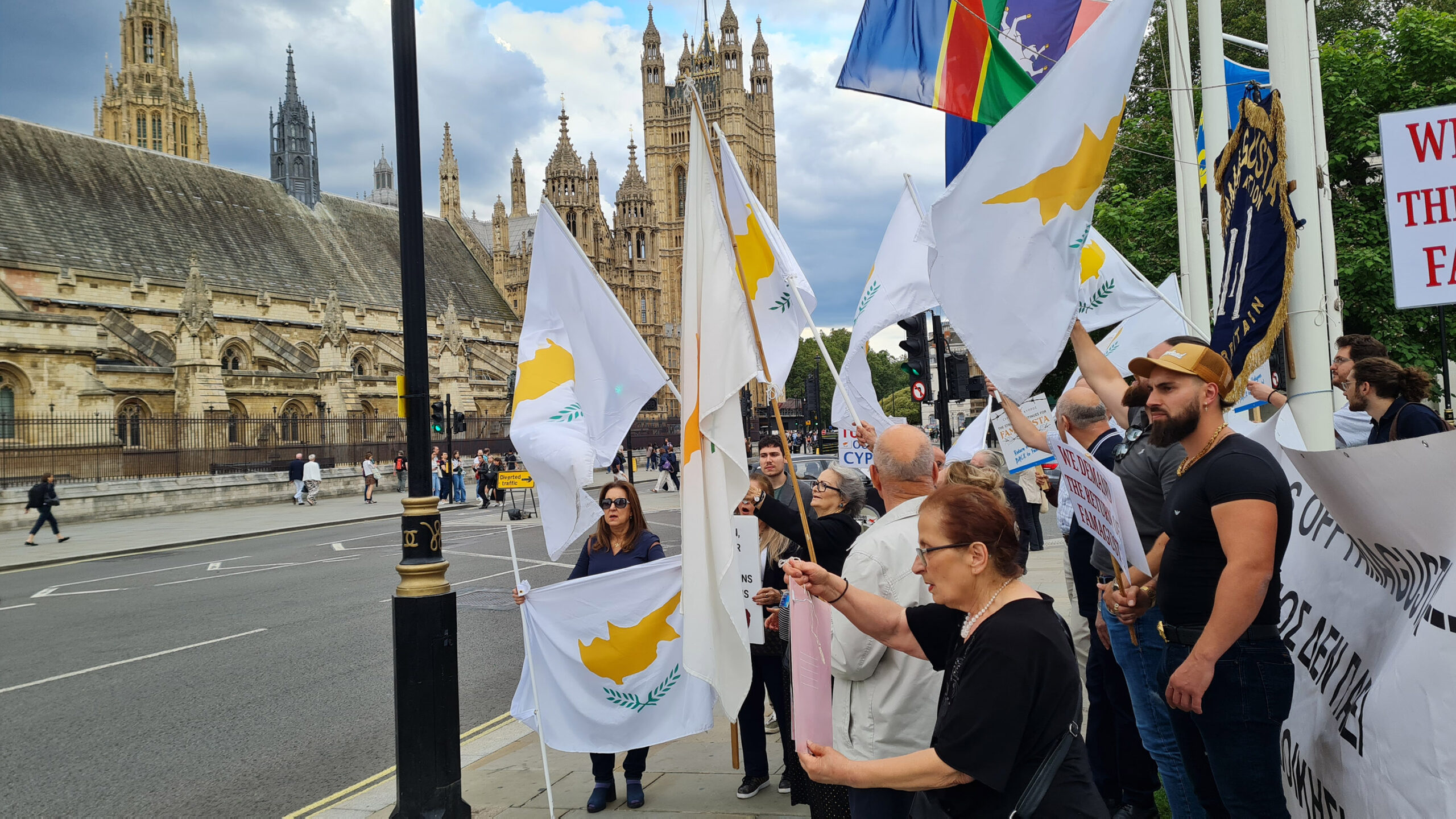There was a rather subdued feeling about this year’s Black anniversary remembrance events, with a sense of fatigue after 49 years of hurt and division.
Government officials made their usual attendance of memorial services and defiant words of “we will not forget”.
But the longer this tragedy is allowed to continue, nobody who witnessed the horrors will be alive, with the sense of loss less poignant than it has been.
Away from the Green Line and the anti-occupation protests, there is no urgency to fix Cyprus, to find the glue that will reunify the two sides of the divide.
Understandably, Cypriots have more pressing concerns with a cost of living crisis, rising rents and mortgage rates.
Turkey’s 1974 invasion displaced a large slice of the population, with many losing their homes, and now the children are struggling to rent or buy their own property.
Generations of Cypriots have been born since the invasion and lived on the island disfigured as it is today, scarred by barbwire, politics, history, missing persons and mistrust.
Many who fled the advancing Turkish army with the clothes on their back have died in exile from their ancestral homes.
They thought they could return in a matter of days; instead, it was the last goodbye, failed diplomacy and dubious politics have ensured that time remains frozen.
It isn’t easy to fathom what Cypriots would settle for these days.
Are Greek Cypriots ready to power share with Turkish Cypriots, or has living decades apart made reunification – all Cypriots under one roof – impossible?
Turkish Cypriots seek more freedoms, but what concessions are they willing to make – is either side ready to compromise, or do they feel enough has been ceded already?
Such questions need to be faced and stared down, but they are issues which we prefer to bypass and stick to the script.
With no substantial UN-led Cyprus talks since they collapsed in 2017, the ground for a breakthrough has remained frozen solid.
Things are so bad; the UN hasn’t appointed an envoy that both sides can blame for screwing up negotiations—a famous pastime of Cypriot politicians.
Fall guy
Once upon a time, the blame game was the only circus in town, but now there’s no fall guy to hide behind.
Former President Nicos Anastasiades deftly avoided doing anything for five years while he ensured the government worked for him, not the electorate.
His successor, Nikos Christodoulides, has tried the get the party started with a Cyprus problem European remix.
He’s trying to produce a tune everyone can dance to without feeling too self-aware on the dancefloor.
Nicosia hopes that Euro disco appeal can give the Cyprus issue a different narrative with a strong beat where the lyrics are vague but catchy.
Fancy footwork of the Europeans boogying to our tune has not impressed the Turkish diplomacy machine.
Christodoulides’ soft sell, earnest persuasion, and approachable public demeanour to revive the Cyprus albatross have hardly shifted the dial.
Whether he tried to change the vocabulary to break the ice, the toned-down rhetoric has had little influence on Erdogan.
Turkey’s President popped over to the north to reassure Turkish Cypriots who their enemy was by banging the nationalist drum to the death tune of 1974.
Ankara’s raging battle cry of a two-state solution was hammered home loud and clear, a concept that Turkish Cypriot leader Ersin Tatar has pinned his political career on.
Erdogan argued that the only reality was his worldview, where Greek Cypriots and the Republic of Cyprus barely existed.
Some could argue that turning up to ‘celebrate’ the invasion of a defenceless island was not the time for him to sound like Nelson Mandela.
Others would say that having the Greek Cypriots to hate enables Erdogan to control the Turkish Cypriots in his own image.
A free, independent Cyprus where Greeks and Turks get along to chart their future is not a remedy made in Ankara.
It may be a vision that many believe is impossible, even those trying to achieve that end game.
For now, it would take a political earthquake of mind-shattering proportions to prevent us from commemorating 50 years of occupation next July 20.










